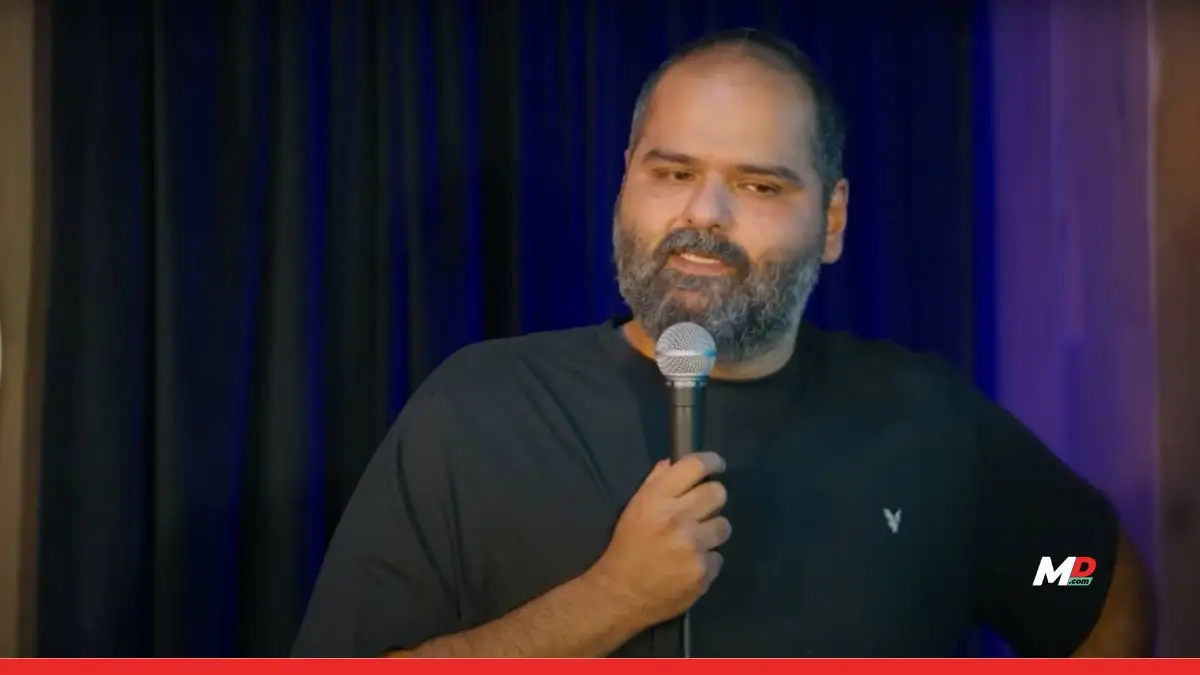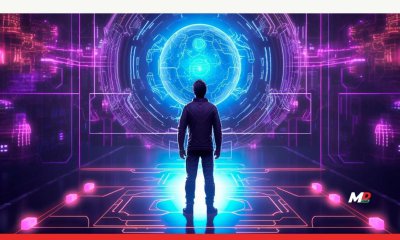Published
11 months agoon

In a nation priding itself on its democratic ethos and constitutional guarantees, the recent controversy surrounding comedian Kunal Kamra is a sobering reminder of how fragile freedom of expression can be. At the heart of the storm is a stand-up performance that triggered political backlash, multiple FIRs, social media outrage, and a wider debate on the role of dissent in a democratic society.
A Joke, an FIR, and a Broken Venue
The saga began with Kamra’s pointed jibe at Maharashtra’s Deputy Chief Minister, Eknath Shinde, during a live performance. Without naming him directly, Kamra parodied a Bollywood song to refer to Shinde as a “gaddar” (traitor), referencing the political split he engineered in the Shiv Sena. The set went viral online, prompting not just outrage but vandalism—Shiv Sena (Shinde faction) workers attacked Mumbai’s Habitat Studio, the venue of the performance, leading to its closure.
What followed was a series of coercive measures. Kamra was booked under public mischief and defamation provisions of the Bharatiya Nyaya Sanhita. He received multiple police summons, which he hasn’t yet responded to, citing concerns for personal safety—especially after receiving over 500 death threats. Kamra has since approached the Bombay High Court seeking to quash the FIRs, calling them a violation of his fundamental rights, as he strikes a defiant note by refusing to back down.
BookMyShow and the Corporate Kowtow
On April 5, online ticketing giant BookMyShow removed all listings related to Kamra after being pressured by Shiv Sena’s Rahool Kanal leader. The company has yet to issue a formal statement, but its silence has been loud enough to ignite a digital revolt. Hashtags like #BoycottBookMyShow and #IStandWithKunalKamra began trending, with users calling the move an act of cowardice and corporate censorship. Screenshots of uninstalled apps flooded social media in protest.
This episode lays bare the challenges faced by platforms trying to straddle commercial imperatives and creative freedom. In giving in to political pressure, BookMyShow may have avoided immediate backlash from one camp, but it has potentially alienated a much wider audience that values the right to free speech.
The Global Response: Solidarity from Artists at Risk Connection
The backlash wasn’t limited to social media. International free speech watchdog Artists at Risk Connection (ARC) publicly condemned the FIRs against Kamra, calling for charges to be dropped and perpetrators of the venue attack to be prosecuted. ARC’s Executive Director Julie Trébault called the coordinated targeting of Kamra “a dangerous assault on artistic freedom” and that “the criminalisation of comedy and the deliberate destruction of independent cultural spaces are a clear violation of the fundamental right to freedom of expression and cultural rights under international law.
These repressive tactics stand in stark contrast to India’s democratic values and must be unequivocally condemned and halted.”
Amnesty India concurred, saying on Twitter (nee X), “The Maharashtra government must stop intimidating comedian Kunal Kamra and members of the audience of his stand-up show. Exercising the right to freedom of expression without fear or unlawful interference is central to living in an open and fair society.”
Such condemnation from global bodies underscores how India’s reputation as a democratic nation is being scrutinised in the international community—not for acts of censorship by authoritarian regimes, but by a democracy that appears to be turning on its own artists.
Free Speech in Free Fall
Kamra’s case is not isolated. Comedian and content creator Ranveer Allahabadia, despite previously being entire supine for the Indian government, found himself under investigation for a satirical remark. He was summoned repeatedly, forced to surrender his passport, and publicly rebuked by the Supreme Court.
Similarly, the makers of the Malayalam film L2: Empuraan faced Enforcement Directorate raids after making cuts to appease censor boards. These cases, though disparate, point to a broader culture of suppression—a systemic effort to curtail voices that dare to challenge or even jest at power.
It is perhaps the case that those in power do not appreciate comedy, for it fosters defiance, while they seek obedience over those that they are meant to serve.
Cultural Spaces Under Siege
What’s particularly worrying is the violent suppression of cultural venues like The Habitat. These spaces have long served as incubators of independent thought and alternative narratives. When such venues are targeted and artists are forced into legal battles simply for making jokes, it sends a chilling message to the entire creative community: dissent will be punished, and compliance is the only safe currency.
Adding another layer of irony, Kamra’s parody about Finance Minister Nirmala Sitharaman, set to a classic Bollywood tune, was restricted on YouTube after a copyright complaint by T-Series—a company whose early success rested almost entirely on music piracy. The symbolism is hard to miss: the gatekeepers of power today were once disruptors who challenged a monopolised system. And now, once they are inside their gated garden, they are doing all they can to ensure the walls don’t come tumbling down.
The High Cost of a Punchline
Kamra’s legal plea argues that the FIRs against him infringe on his rights under Articles 19 and 21 of the Indian Constitution—freedom of expression and the right to life and liberty. While courts are yet to rule on the matter, the implications go far beyond Kamra himself. This is a societal litmus test of profound proportions.
The question is simple: Can India continue to call itself a democracy if its comedians, filmmakers, and satirists must constantly look over their shoulders? Do those in the highest echelons truly consider criticism to be the soul of democracy?
In Kamra’s closing credits from the now-viral video, he includes a photograph of jailed activist Umar Khalid, who has been denied bail three times since his 2020 incarceration without trial. It’s a stark reminder that the ability to speak up—whether as an activist, journalist, or comedian—is increasingly becoming a privilege, not a right. And it is one in short supply.
What This Means for India’s Democratic Future
India’s cultural and political history has always included room for satire, dissent, and critique. From street plays to literary festivals, from cartoonists like R. K. Laxman to present-day social media creators, humour and dissent have long coexisted with governance. The erosion of this balance marks a dangerous tilt.
As the line between governance and repression blurs, and as platforms capitulate under pressure, India must ask itself: are we protecting the sentiments of the powerful at the cost of our own democratic fabric?
Kamra’s quip was a joke. The response, unfortunately, is anything but funny.


Here’s why Adani is betting $100 Billion on Data Centers


Sterlite Group appoints Sumil Mathur as Group CFO


India’s young entrepreneurs are building billion-dollar startups


Anthropic opens India office in Bengaluru


Mankind Pharma Reinvents Global Supply Chain and Procurement with Accenture


“Don’t build first and fix later”

